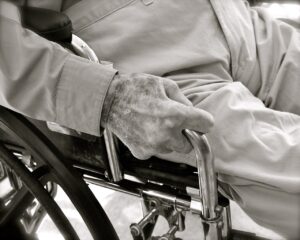The home health care industry in Australia has expanded by 20% over the last five years, do you know this? This reveals just how much more people require empathetic and competent Home health caregivers. Through home care they are altering ways that Australians get care even in their household. This guide seeks to establish the leading 10 home health caregivers in Australia. It then goes on enumerating their functions and why they are unique. It also assists in locating a proper caregiver to the elderly or any member of the family you are looking for.
Table of Contents
ToggleKey Takeaways
The health sector wherein home health care services are provided has expanded by 20% within the last five years indicating the growing need of qualified careers.
- This paper aims at identifying the ten best home health caregivers in Australia, their functions, and how to choose the best one.
- Information is given on how to select a competent guardian, how best to relate with him or her and how to create a secure atmosphere for your relative.
- The necessity to have time for you caregiver and not to let her get burned out is also considered.
- Thus, the article was intended to act as a guide for families willing to find the best home health care services in Australia.
What Is a Home Health Caregiver?
Generally, a home health caregiver is an individual or a specialist who assists those individuals who require assistance on a daily basis. These could be elderly, disabled or those who have chronic health complications with reference to the family. They are of vital significance because they ensure their clients remain happy and are able to live comfortably in their own homes.
Understanding the Role and Responsibilities
There are many responsibilities which are assigned to the home health caregivers. These include:
- Assistance in Activities of Daily Living which includes; Washing, dressing, and grooming the client.
- Feeding the patient and attending to their needs and the type of meal to prepare.
- Feeding in accordance to doctor’s advice or administering drugs at certain times.
- A close companion and providing companionship.
- Washing of clothes, dishes preparing and sorting chores, dusting and sweeping.
- The most time-consumed tasks include; accompanying clients to doctor’s appointments as well as running errands.
- Monitoring the status of the client’s health and reporting any changes to the members of the healthcare team
This service works hand in hand with the clients, families and doctors to ensure that the best results are attained. Each of them should have health skills, be empathetic and be patient to their clients.
| Key Responsibilities of a Home Health Caregiver | Description |
| Personal Care | Helping with bathing, dressing, grooming, and daily activities |
| Meal Preparation | Planning, making, and serving healthy meals, following dietary needs |
| Medication Management | Giving or watching the client’s medicine as ordered |
| Companionship and Emotional Support | Being a caring and supportive friend to improve well-being |
| Light Housekeeping | Doing laundry, cleaning, and organizing to keep the home nice |
| Transportation and Errands | Taking the client to appointments and doing daily tasks |
| Health Monitoring | Watching the client’s health and telling the healthcare team about any changes |

The understanding of what a home health caregiver does enables people and families to make right choices with regards to the kind of care needed. By doing so, their beloved ones remain safe and content at home in the event of the expenses being necessary.
The Importance of Home Health Caregivers
The role of home health caregivers is formative when it comes to assisting people to stay at home with additional support. Without any doubt, they have a central role in improving clients’ lives. They also lessen the burden of families and prevent the probability of turning to costly inpatient services such as nursing homes or hospitals.
Another advantage of having home health caregivers is that independent living is supported for the patients. They provide care that meets a client’s needs and, thereby, allowing the client to remain in his/her own home. This makes them close to their things and routines; hence enhancing their mental and emotional health. Caregivers in home health also do help families a lot. Here it is necessary to mention tasks such as personal care and feeding, taking some load off families.
This in a way helps the involve family members to have more time on their own and be closely related to their family. Selecting a home health caregiver can prove to be cheaper as compared to other forms of requiring care.
This can help or prevent the necessity of a nursing home or a hospital. This in the end cuts on the costs that would have been incurred by the individual in need of the care, and the healthcare system in general.
To the layman it means one can use resources to the optimum and offer care to fellow human beings without under other circumstances forcing people to dig deep into their pockets.
| Key Benefits of Home Health Caregivers | Impact |
| Maintain Independence and Autonomy | Improved Mental and Emotional Wellbeing |
| Respite and Support for Family Caregivers | Reduced Burden and More Quality Time Together |
| Cost-effective Alternative to Institutional Care | Reduced Financial Strain and Efficient Resource Allocation |

“Home health caregivers are the angels who make it possible for the patients to be independent and preserve their dignity besides assisting the families”
In conclusion, home health caregivers’ role is very significant. Such agencies assist in caring for the patients, they support individuals and their families, enable people to live independently, and provide excellent service at a reasonable rate. They are helpful because the recognition of the value of each option assists people in making correct decisions concerning their care.
Qualities to Look for in Top Home Health Caregivers
Selecting the best home health caregiver is the most important decision. They should possess characteristics that guarantee that your loved one is well taken care of. Such qualities contribute towards the development of healthy and favorable interaction with the caregiver.
Compassion and Empathy
Understanding and being sensitive are compulsory qualities for a caregiver. They should genuinely have the interest of the clients at heart. They have to comprehend the social and psychological aspects of a disabled life. It should show the willingness to make the client comfortable and give him/her a feeling that what he/she is saying is important.
Attention to Detail
Thus, it’s important for a caregiver to pay close attention to detail. They have to be details oriented in that they have to do their job as expected. This ranges from administering the proper dosage of the medicines to general cleanliness, safety and hygiene in the vicinity.
The next quality I associated with great caregivers is communication: agreeing identified this quality as important for caregivers. They should be willing to change and ready to provide utmost care. Being able to locate such qualities makes one relieved that their loved one is in good hands. They will enhance their health status and life quality significantly.
| Qualities of a Good Home Health Caregiver | Characteristics of a Top Home Health Caregiver | Skills of a Professional Home Health Caregiver |
| Compassion and empathy | Attention to detail | Strong communication skills |
| Adaptability | Commitment to providing high-quality care | Ability to adapt to changing client needs |
| Patience | Trustworthiness and reliability | Knowledge of medical procedures and care |
Hereby, when selecting a caregiver, paying attention to the above-mentioned qualities will help your loved one get the required care. It also assists in forging a constructive and efficient working relationship with the other organization.
Top 10 Home Health Caregiver
Selecting the most appropriate home health caregiver for a relative is not a very easy job. Here is a list of identifies the 10 best home health caregivers in Australia. They provide many services including providing care services and company services. They have aspirations of providing superior services to attain what is deemed best in the offering of health quality.
- Caring Hearts Home Health – They are widely recommended due to personalization in approach and effective training carried out by the agency. Caring Hearts Home Health is one of the leading home health care facilities in Australia.
- Comfort Keepers Australia – It is an organization that assist those in need to remain self-sufficient and live improved quality life. Since Comfort Keepers Australia is one of the best home health cares in Australia, it is highly recommended.
- Absolute Care and Health – Their caregivers are skilled and very caring. Absolute Care and Health is specialist health care company that focuses on home health care services in Australia.
- Bupa Home Care – This is one of the home health caregivers with highest ranking in Australia. They provide many services that can solve personal requests.
- Allity Home Care – They care about clients’ health and desire to remain as self-sufficient as they can. Allity Home Care is amongst the most popular home health care company in Australia.
Australian home health care providers represented in these papers are focused on improving the lives of their clients. These are some of the facilities that when you select from, you are assured that your loved one is receiving the appropriate care.

Many thanks to the caregiver from Caring Hearts Home Health; they indeed have been very caring and loving to my family and we feel like they are a part of us. – John, Melbourne
Finding the Right Caregiver for Your Loved One
Selecting the right home health caregiver for a relative is one of the determinants to their contentment and quality of life. It means you do interviews comprehensively, conduct reference checks, and identifying if the caregiver is right for the loved one. Making sure you select the right person to take care of your loved one simply means your loved one is being well taken care of.
Conducting Interviews and Background Checks
Searching for a home health caregiver entails getting to the applicant’s root for them to qualify for the position. You should look at skills, experience and how compatible the provider is to the needs of your loved one. Important things to think about during interviews include:
- The extent to which the caregiver communicates appropriately with the patient and meets the latter’s needs.
- What gentle people they are
- What training and experience they have regarding the care of your loved one.
- They vary when it comes to flexibility and their ability to adhere to a schedule favored by your loved one
It is also important to get to the bottom and ask questions concerning the background of the caregivers to ensure you are dealing with a safe and reliable person. Of course this means giving references a call, using criminal background check and ensuring they have all the necessary permits or licenses.
| Considerations When Hiring a Home Health Caregiver | Importance |
| Communication Skills | Ability to effectively understand and respond to your loved one’s needs |
| Compassion and Empathy | Crucial for providing personalized and sensitive care |
| Relevant Experience | Ensures the caregiver is equipped to handle your loved one’s specific care requirements |
| Reliability and Flexibility | Important for maintaining a consistent and adaptable care routine |
| Background Checks | Ensures the caregiver’s trustworthiness and safety |
To ensure that your loved one is in good hands with a good caregiver, it is important to take time when selecting them, so that good results can be obtained in the caregiving business.

Creating a Positive Working Relationship
Important thing that should be managed well is the relationship between the patient and his or her home health caregiver. This makes care delivery to be efficient and effective starting off with a good foundation.
Thus, you can build respect and openness of the partner and clear communication throughout the partnership. This results in improved care and welfare of the clients, relative comfort of the healthcare attendants and everyone is satisfied.
Here are some tips for building a positive relationship with a home health caregiver and working with a home health caregiver to foster a successful partnership: Here are some tips for building a positive relationship with a home health caregiver and working with a home health caregiver to foster a successful partnership:
- Encourage open communication. It is advisable to frequently discuss the needs, things that your loved one enjoys, and if there is anything that is bothering him or her. Encourage the caregiver to say what they observe also.
- Set clear expectations. Agree and most importantly clarify on responsibilities and responsibilities and adhere to boundaries.
- Show appreciation. Express appreciation to the caregiver for being such an important part of the elder’s life. In my option thanking is one of the ways that can really assist in fortifying the relationship.
- Be flexible and adaptable. Bear in mind that the care plan can be revisionist in the future but this should remain the main goal for a certain amount of time. Be prepared to fine tune it also.
- Do not cross the professional status the caregiver has. Do not work them beyond their schedule or the things they are not happy or content to do.
Altogether the following tips are useful in creating a trusting and working environment: Hence improving the working relationship with the home health caregiver. It also enhances the quality of care and your loved one’s health.

“This is why, any cooperation with a home health caregiver should be based on the principles of trust and understanding as well as the readiness to form new patterns in response to the new conditions”
Managing Expectations and Communication
If one has to hire a home health caregiver, then it becomes imperative that the patient and the caregiver understand each other’s expectations and needs for it to become a good working relationship. Thus, ensuring that your loved one’s needs are addressed, practicing realistic and vulnerable communication can help set proper boundaries. This ensures that the caregiving exercise becomes easier to handle.
Specifically, the following guidelines should be established when a caregiver joins and begins to assist you: Discuss what the caregiver should do, when they will do it or what special request the customer may have. You are able to rapidly discharge any issues, and this is because of the straightforward organization of the home health caregiver. It makes the work together more honest because there are no hidden elements and people are easy to influence.
Another recipient that should be addressed to has to do with expectations when dealing with a home health caregiver. Be as truthful as you can with respect to what the loved one requires and explain this to the caregiver. This helps eliminate confusion and ensure that the caregiver is well informed on what should be done. This is because there should be unity at the workplace, meetings, and open discussion help in making this possible.
Try to ask questions and listen to what could be troubling the caregiver. This generates confidence and collaboration towards the goal of achieving the best health care to the people. Do not forget, that constant voicing of the guidelines and having a good relationship with a home health caregiver decreases the level of stress. Due to its effectiveness and efficiency, it engulfs the caregiving process with positivity and cooperation from all parties.
Respecting Privacy and Boundaries
Home health caregiver services entail privacy and any form of interaction must adhere to this policy and respect for each family members’ privacy. For that reason, it is very important for building a professional and trusting cooperation. This section deals with the issues of reciprocity that include the questions of the absence of clarity of the rules, rights to secrecy, and the ability to respect.
Establishing Trust and Professionalism
To make a working relationship with a home health caregiver possible, trust is of the essence. In their relations, one must set right rules right from the start. This also includes defining the scope of what is expected from the caregiver as well as respecting the caregiver’s circle of physical and temporal privacy. It maintains the business aspect and ensures that everyone feels valued in the situation.
It is also important to keep the data confidential as well the retrieved record is: This means that never disclose the health of your loved one, his/her matters concerning his/her life, or the financial status. Staying professional is also a good way to maintain distance while having a home health caregiver.
This means that one is expected to adhere to specific work schedules and cannot combine the two family and work. He emphasized that it has the added advantage of keeping the attention on providing proper care for the relative.
That is why, there is a need for proper communication with the caregiver, which will enable one to respect the aspects of privacy and personal space. This way expectations are set implicitly and information is not shared, thus one earns the trust of the other party. This way, the dear one is receiving the right care they deserve from a qualified professional.
Providing a Safe and Comfortable Environment
If you are welcoming a home health caregiver, into your beloved one’s house you need to ensure it is safe and cozy. All the home modifications you do and ensure the environment is clean are ways of assisting the caregiver deliver superior quality care.
They will also feel familiar because they are accustomed to their devices being commandeered into a black hole of cognitively inaccessible data. As for me, one thing is quite significant to ensure that the home does not pose any threat to the caregiver’s well-being.
This implies installation of bars to hold on to in the bathroom, adequate lighting, and elimination of risks such as frayed carpeting. Another is also to provide the caregiver with a comfortable place to operate from. This ranges from having a comfortable chair, enough space and the things they require should be easily gotten.
Remember the consideration of their needs when deciding what changes to make in the house for your loved one and the caregiver. These should be wide and even especially if your loved one uses a wheelchair to get around the house. Ramp or even movable beds such as the bed with stairs can also ease one’s life and make them comfy.
| Home Modification | Benefits |
| Grab bars in the bathroom | Improved safety and stability for the caregiver and your loved one |
| Adequate lighting throughout the home | Reduces the risk of trips and falls, enhancing the caregiver’s ability to provide care |
| Adjustable beds or stair lifts | Increases accessibility and comfort for your loved one, making it easier for the caregiver to provide assistance |
By making a safe and comfy space for the caregiver, you help everyone feel better. Small changes can make a big difference in well-being and happiness. This supports a good working relationship and lets the caregiver give the best care possible.
Supporting Your Caregiver’s Well-being
This way, both the patient and the caregiver get to feel much better since you created a safe and comfy place for the caregiver. It is, therefore, important to note that little measures go a long way in improving the quality of people’s lives and levels of happiness. These create a good working relationship and allow the caregiver to provide the best care as possible.
Recognizing Signs of Burnout
It is therefore challenging and enjoyable at the same time to care for a relative at home most especially for the unknown caregivers. It is important to check for some of the symptoms of burn out in order to be able to arrest this early enough. This essentially contributes to the rule of keeping the caregiver healthy and happy. It is important for all the caregivers out there to know that burnout is not a myth. Watch out for these signs: Watch out for these signs:
- Sleepiness after a shut eye
- Having low energy and getting easily frustrated.
- As if one’s attention span and capability to choose or resolve things are being put to great extremes.
- We saw poor patient care where the career neglects personal care or social life.
- Other tangible things that one is likely to come across are, for instance, headaches or tension in muscles.
These are the signs, if you witness them, you should move quickly. These negative consequences include the deterioration of the caregiver and the quality of care for your loved one. Conversing with the caregiver frequently, and having some time off can help in avoiding getting burnt out. Thus, you help them to learn how to properly care for your loved one for years to come.
The most valuable thing a family member can do for the chronically ill family member is be a healthy and supported caregiver. Knowing that supporting your caregiver’s well-being has the function of preventing burnout is crucial in view of checking constantly deteriorating generational health. This enables them to continue delivering optimal care that your loved one requires.
Conclusion
This is particular the reason why in this particular guide, we made it our duty and responsibility to discuss about the relevance and significance of the top home health caregivers in Australia. The focus was on their responsibilities, ideal attributes, and methods of selecting a competent candidate. This way, the loved one is receiving proper at home care from competent personnel to mitigate any incidences of physical deterioration. It is paramount when searching for a caregiver to consider them as a compassionate, detail-oriented individual and disciplined towards the clients.
One has to interview them well, conduct a background check and ensure that there is a good rapport between them. This has a proviso for the correct performativity of the care setup. Lastly, considering the home health care, the importance of reporting any identified necessary changes that relate to open communication, respect and care of people in relation to the health care. Making a comfortable and safe environment also maintains the strength of the caregiver and they will not get easily burned out. This in turn creates a far more positive and efficient care showing for all those influencing the patient care.
FAQ
1. Who is a home health caregiver?
A home health caregiver assists those individuals who require assistance in performing activity of their daily living. The patients are helped in washing, grooming, feeding, and administering medicines. They said the elderly, disabled or sick persons to be at home without having to be a burden to someone.
2. To get a precise understanding of what home health caregiver does, the following are the responsibilities of the home health caregiver?
Some of them include feeding, giving of medication, and shaving, washing, dressing and even combing hair. They also clean, do limited house chores, administer medicines, and companionship to their clients. Its policy guarantees that the clients’ physical, emotional, and social needs are fulfilled.
3. What are the roles / significance of home health caregivers?
Just recently, they assist the individuals who need the support in order to remain at home. DSCs enhance the quality of their clients’ lives and simultaneously relieve the burden from families while avoiding the need for costlier interventions, such as nursing homes.
4. I would like to know the kind of qualities that I should consider when hiring a home health caregiver?
Most importantly, consider people with friendly personality, timely, good in talking, flexible and people who gives quality care.
5. Where and how do I go about searching for a competent caregiver for my relative?
Select the keeper by talking to them, examining their past records and overall, determining if they are compatible with your loved one’s requirement. Spend some time demonstrating that he or she appreciates the effort to meet a right caretaker.
6. What should I do to be correctly addressed and relate harmoniously with the home health caregiver?
A good rapport means earning the trust of the other, communicating, and valuing each other’s company. This results in good patient care and a positive experience for all the patients and their attendants.
7. How avoid disappointing the home health caregiver through setting the wrong expectations or not being clear?
There must be proper understanding between the parents and the child as well as between The Johnson’s and their baby sitter. Be consistent in the rules and expectations you are willing to set for him or her, be reasonable and communicative to make sure the person’s needs are being met.
8. What is the best way to protect privacy and personal space of the intended family member as well as the caretaker?
Minimize intruding the privacy of one another by having a proper code of words, giving much importance to words like respect and professionalism.

